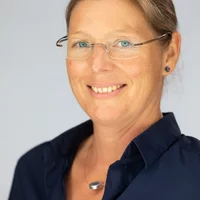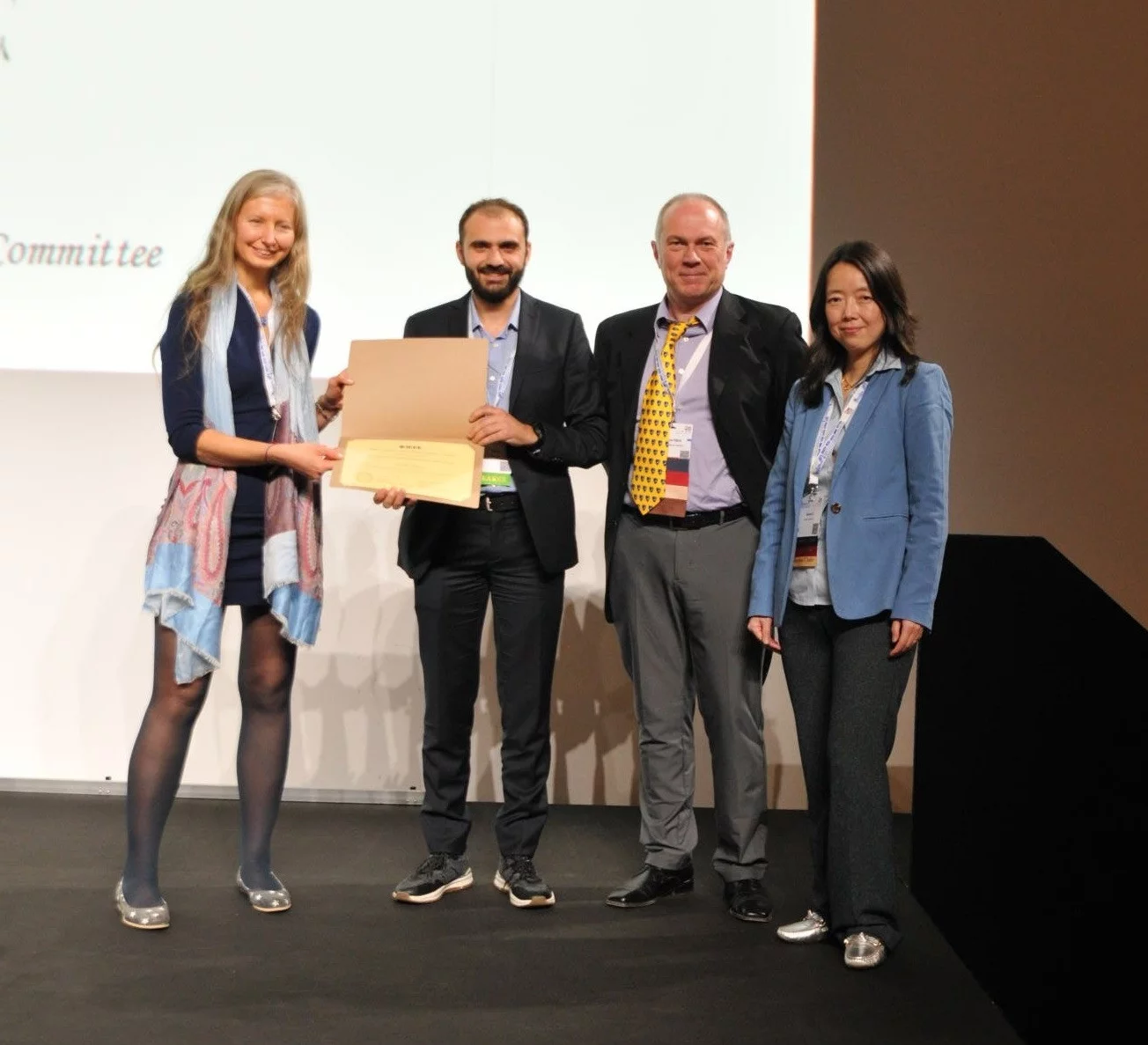The prestigious IEEE Early Career Award 2022 was given to Dr. Davide Mezza from PSI for his contributions to the development of XFEL detectors and specifically for their verification, characterization, and calibration.
One of the challenges at XFEL sources is the large dynamic range in the images produced by a single pulse. In every XFEL pulse the intensity can be between 0 and more than 105 photons per pixel. This required the development of large dynamic range integrating detectors with a dynamic gain-switching architecture capable of dealing with this wide range of photon intensities.
In the dynamic gain switching architecture, every pixel has three gains starting the acquisition with high gain to achieve single photon resolution and then switching dynamically and independently from other pixels to medium or low gain depending on the number of photons received in the pixel. The first implementation of this dynamic gain-switching architecture was done at PSI for the first Gotthard prototype in 2005 and later in AGIPD, Gotthard I, Gotthard II, and Jungfrau. The dynamic gain-switching concept has proven to be very successful. It gives single photon sensitivity down to 2 keV (e.g. for Jungfrau) and covers a large dynamic range up to 104 12 keV photons (or 6x104 2keV photons) with a noise which is less than the Poisson statistical fluctuations over the entire dynamic range. This ensures that the data quality is limited by statistics and not the electronic noise of the detector, giving a data quality as good as the well-established single photon counting detectors.
However, the dynamic gain-switching architecture is very complex and, in order to achieve good data quality, requires a precise calibration of gain and offset for each gain range in each pixel. Therefore, calibration methods needed to be developed and verified to ensure highest possible data quality. This is where Davide’s work comes in. First, as a postdoc and later on as a scientist, Davide worked at PSI on the characterization, calibration and verification of the AGIPD detector. He first developed a mathematical model for the calibration. He then took several calibration datasets using photons, on-chip calibration sources, external optical laser diodes, protons, and sensor backside pulsing - a new technique developed by him- to determine the calibration constants. The different calibration methods all have different effects that need to be understood and corrected for. Davide showed that after corrections, all calibration methods give the same results. His work led to a deep understanding of the gain-switching architecture and its calibration and had a considerable influence on almost all currently existing dynamic gain switching XFEL detectors and more in general on charge integrating detectors.
Related publications
- Calibration Methods for Charge Integrating Detectors, D. Mezza et al., Nuclear Inst. and Methods in Physics Research, A 1024 (2022) 166078, DOI: https://doi.org/10.1016/j.nima.2021.166078
- Characterization of the AGIPD1.1 readout chip and improvements with respect to AGIPD1.0, D. Mezza, et al., Nuclear Inst. and Methods in Physics Research, A 945 (2019) 162606, DOI: https://doi.org/10.1016/j.nima.2019.162606
- Megahertz serial crystallography, M. Wiedorn et al., Nature Communication 9, 4025 (2018)., DOI: https://doi.org/10.1038/s41467-018-06156-7
- New calibration circuitry and concept for AGIPD, D. Mezza et al., JINST 11 C11019, DOI https://doi.org/10.1088/1748-0221/11/11/C11019
- Characterization of AGIPD 1.0: the full scale chip, D. Mezza et al., Nuclear Inst. and Methods in Physics Research, A 838 (2016) 39–46, DOI: http://dx.doi.org/10.1016/j.nima.2016.09.007


